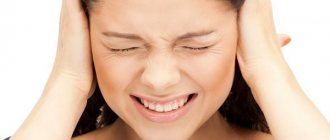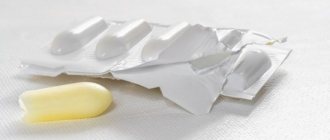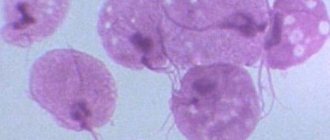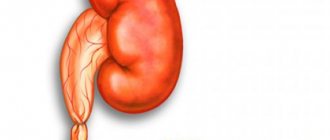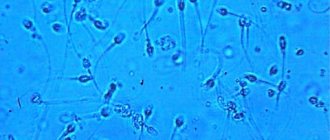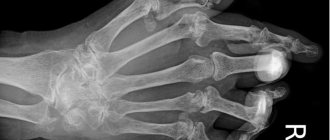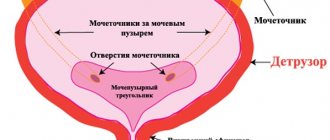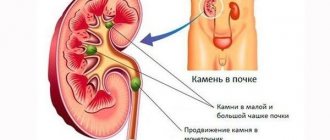Signs of hemorrhoids in men occur quite often, the disease causes a lot of inconvenience and worsens the quality of life, but at the same time, when faced with this problem, men postpone visiting the doctor, aggravating the situation. Most patients are mature men; the development of this pathology is explained by lifestyle features.
Hemorrhoids cause a lot of inconvenience and worsen the quality of life of men.
What causes hemorrhoids in men?
Hemorrhoids are varicose veins around the anal canal, a painful inflammation of the hemorrhoids. The root cause of the disease is stagnation of blood in the pelvis.
Constipation. They are one of the most common causes of hemorrhoids
But there are plenty of things that encourage such phenomena:
- Leading an unhealthy lifestyle. Passion for tobacco and alcohol, such behavior typical of men, has never made anyone healthier. Among other things, cigarettes and alcoholic drinks contain toxic chemicals. When they enter the blood, they lead to a strong and sudden rush into the pelvic area. The more alcohol, the more blood stagnation. This phenomenon, if repeated frequently, will negatively affect the condition of your veins.
- Digestive disorders leading to constipation. Fatty, heavy, fried, very spicy and salty foods, a lack of grains, vegetables and foods rich in fiber - this “traditional” food for the stronger sex can explain why hemorrhoids are more common in men. Added to this is the inability to adjust the diet. Because of this, food is slowly absorbed in the intestines, the functioning of the gastrointestinal tract worsens, and interruptions in stool are ensured. And spices also cause a rush of venous blood to the pelvis (we have already discussed this problem above).
- Prolonged sitting and standing work. Low physical activity contributes to blood stagnation in the pelvic organs. So all office workers, drivers, cashiers, freelancers automatically increase their risk of getting sick. Let's add to this the desire to quickly get on public transport and, especially, the use of a personal car when a person moves at a minimum.
- Excessive sports activities, work related to heavy lifting. It is too early for an athlete or a construction worker to rejoice, excluding hemorrhoids from a possible disease. When lifting weights, the human body will automatically tense, including in the sphincter area. In isolated cases this is not dangerous, but on an ongoing basis it can provoke the development of hemorrhoids.
- Age-related changes. The older you get, the more attention your health requires - this is an indisputable fact.
- Heredity. Yes, unfortunately, you can get a predisposition to hemorrhoids from your parents. So, if this delicate problem has already existed in the family, you should avoid the main mistakes that lead to illness.
Symptoms
How do initial hemorrhoids manifest? At the beginning of the disease, patients simply feel discomfort during bowel movements, sometimes there is no sensation at all. Most often, initial hemorrhoids are diagnosed during a routine examination by a proctologist or during consultation about another disease. Therefore, experts recommend undergoing preventive examinations annually, especially if a person has a sedentary job, a sedentary life, or a predisposition to varicose veins.
How do hemorrhoids develop gradually?
Acute disease
- A generally uncomfortable feeling when visiting the toilet.
- Anorectal heaviness, feeling of foreignness in the canal.
- Mucous discharge from the anus.
- Itchy symptoms with burning in the anus.
- Traces of blood on paper, linen in feces.
Each sign of hemorrhoids is individual for all patients, the symptoms increase gradually. Timely therapy will prevent the disease from becoming chronic. The severe stage is difficult to treat, and sometimes surgery is indispensable.
Symptoms of hemorrhoids in men
Signs of the disease can be divided into two groups: the first stage and the three subsequent ones. Let's figure out why hemorrhoids are dangerous. Symptoms in men at the beginning of the disease are not clearly visible. Meanwhile, early consultation with a doctor guarantees high effectiveness of treatment and absence of relapses.
You should be wary if:
- discomfort and unpleasant sensations appear in the anal area. Initially, they will appear only after sitting for a long time, quickly disappear when changing posture, which is why it is not easy to track them;
- itching in the anus. It can be either constant, intrusive, or episodic. Itching occurs due to the release through the rectum of fluid formed in injured hemorrhoidal nodes;
- bloody discharge during bowel movements. So far they are insignificant, appearing with constipation and severe straining.
At the second stage of the disease, it is no longer possible not to notice the symptoms. Among them:
- sensation of a foreign body in the anus and rectum;
- prolapse of hemorrhoids during defecation. After defecation in the second stage of hemorrhoids, they still move into place on their own; in the future, this operation will have to be done with your fingers;
- constant pain in the anus, bleeding from it - not only at the time of defecation, but also in everyday life when coughing, sneezing and laughing;
- the appearance of hemorrhoidal cones around the hole. In the first stages, an experienced doctor can palpate them; at this stage, even with the naked eye you can see what hemorrhoids look like in men. As the disease progresses, the nodes will enlarge, turn blue and purple.
What does it look like
Hemorrhoidal disease can be noticed at the beginning of its development, of course, if you pay attention to changes in your condition. What does the initial stage of developing hemorrhoids look like? Not everyone can recognize the initial stage, since the symptoms are so minor that people simply ignore them. Therefore, patients most often find out about the presence of the disease during a routine examination by a proctologist. The doctor explains in detail what developing hemorrhoids look like at the initial stage, what needs to be done, and what treatment to undergo.
The early stage of hemorrhoidal disease is easily treated; the sooner the therapy is completed, the greater the chance of forgetting about the disease forever.
The first signs to be ignored are:
Discomfort in the anus
- feeling of foreignness in the anus, heaviness;
- discomfort during bowel movements;
- itchy symptoms with burning of the anus;
- rarely pain during bowel movements.
What are hemorrhoids and what does it look like? Hemorrhoidal pathology can be internal or external. Internal hemorrhoidal disease can only be recognized by a doctor, since the nodes are located inside the intestine. The patient can feel external hemorrhoids with his finger. Feeling a dense tubercle near the anus, this is a hemorrhoidal lump. The longer the disease goes untreated, the larger the bumps become and the more they change in color.
With external hemorrhoidal pathology, despite the absence of lumps externally, the perineal tissue looks swollen and inflamed. If the patient immediately identifies pathological changes and consults a doctor in a timely manner, then there will be no need to wonder what hemorrhoids are and what the lump looks like. The doctor will diagnose the disease and prescribe effective therapy.
Why are hemorrhoids dangerous in men?
The symptoms of hemorrhoids described above are not pleasant in themselves.
But, if you brush them off or get carried away with symptomatic treatment, you risk getting a whole bunch of complications in addition to hemorrhoids:
- anemia. Constant bleeding is unpleasant and causes discomfort. If at first the amount of blood is insignificant, and many do not even notice it, then in more advanced stages the bleeding intensifies. Anemia and oxygen starvation of the body are possible. This pathology can only be treated surgically;
- thrombosis of the rectal veins. When bleeding occurs, blood clots enter the prolapsed nodes and lead to thrombosis. If this process is started, necrosis of part of the intestine is possible. If thrombosis is chronic, the patient will undergo surgical intervention;
- the appearance of anal fissures, swelling (swelling of the entire groin area is possible). This is an extremely painful process;
- paraproctitis is a complication associated with suppuration of tissues adjacent to hemorrhoids. This is fraught with the formation of a fistula and the entry of pus into the peritoneal area.
In a very advanced situation, the symptoms of hemorrhoids are very deplorable: the man cannot sit or walk normally, and purulent processes begin in his anus
How to prevent
Doctor's advice
How to treat hemorrhoids by preventing them in the early stages? The initial stage of hemorrhoidal pathology can be cured quickly. To do this, proctologists recommend using not only prescribed medications, but also following certain rules.
First of all, the patient must reconsider his usual lifestyle with his diet. The health of the anorectal region largely depends on the functioning of the intestines. Constipation should be avoided, and if such phenomena occur, doctors prescribe laxatives in emergency cases. Movement is necessary to improve vascular tone and blood circulation. People with sedentary jobs should get up every hour to do exercises that improve blood flow (to prevent stagnation). To avoid dysbacteriosis, it is necessary to consume fermented milk products.
How to treat hemorrhoids in men?
The main task in treating hemorrhoids for a man will be to get rid of embarrassment. You need to seek help immediately. As you can see, at first the symptoms do not cause any particular inconvenience, but this does not mean that you can not be treated! If you come to the hospital in a timely manner, the doctor will advise you to change your lifestyle: move more or give up excessive physical activity, review your diet, reduce the amount of alcoholic beverages and tobacco products.
As treatment itself, ointments for hemorrhoids (some of them are very effective), infusions, and sclerotherapy (the introduction of special drugs that glue blood vessels) can be prescribed. In later stages, surgical intervention is indispensable.
The treatment tactics for male hemorrhoids can be very different and depend on the stage of the disease.
All medications for hemorrhoids are divided into:
- anti-inflammatory (Bufexamac, Hydrocortisone, Prednisolone), which will stop the proliferation of bacteria and at the same time reduce swelling;
- strengthening veins and capillaries (venotonics) - Troxevasin, Aescin, Detralex, Normoven;
- drugs that thin the blood and improve its rheology (Heparin, Magnicor);
- non-narcotic analgesics (Ibuprofen, Analgin, Diclofenac).
Medicines can be in the form of tablets, ointments and suppositories for hemorrhoids for men. Your doctor will select a course of treatment and medications for you.
Men rarely resort to traditional methods, but they should not be excluded from therapy. Widely used :
- baths with decoctions of medicinal herbs (oak bark, chamomile, knotweed, nettle);
- hemostatic, laxative infusions with flax seed, nettle, yarrow, buckthorn bark, used internally;
- ointments based on propolis, sea buckthorn oil, pork fat, tea tree.
Treatment
The patient's unwillingness or unwillingness to make qualitative changes in his lifestyle represents the main difficulty in treating the pathology. First of all, you need to pull yourself together and create favorable conditions for getting rid of the disease: do gymnastics, move a lot, remove heavy and irritating foods from your diet, give up alcohol.
Treatment of hemorrhoids in men depends on the degree of pathology and the presence of complications.
Medications
In order to reduce discomfort, hemorrhoid medicine for men has analgesic properties, eliminates burning and itching, which allows you to gain strength to follow the doctor's instructions.
Non-surgical therapy is carried out at stages 1–2. In this case the following is prescribed:
- anticoagulants to prevent the formation of blood clots in the final section of the digestive tube;
- hemostatics to stop bleeding;
- wound-healing, antipruritic, anti-inflammatory and analgesic suppositories and ointments;
- phlebotonics;
- vitamins;
- laxatives to improve bowel movements.
There is a long range of drugs in the form of ointments and suppositories that are used as a remedy for hemorrhoids for men in the presence of cracks and swelling.
Surgery
At stages 3–4, when medications do not help, a minimally invasive (gentle) technique or surgery is prescribed. Modern surgical methods are also indicated for grades 1–2 of pathology.
Laser coagulation. Indicated for restoring the structure of the walls of the rectum.
Sclerotherapy. Used to reduce nodes and stop bleeding.
Cryodestruction. The principle of operation of the technique is based on freezing and subsequent death of the affected areas.
Ligation. It is performed by tightening a hemorrhoidal vascular formation with a dense thread (ligature), which leads to its gradual falling off.
Infrared coagulation. The technique is indicated to stop bleeding.
Hemorrhoidectomy is a surgical operation used to remove nodes in case of complications.
Transanal resection - pulling dilated veins up the passage and reducing their volume by removing part of the mucous membrane of the final section of the digestive tube. Subsequently, the nodes transform into connective tissue.
Preventive measures to avoid illness
It is better to prevent any disease than to treat it for a long time. Recommendations for men are:
- change the chair in which you spend a lot of time by replacing the seat with a harder one;
- include a warm-up and a short walk in your work schedule;
- change your diet, reducing the amount of foods that lead to constipation;
- reduce alcohol consumption;
- drink about two liters of clean water per day (tea and coffee do not count);
- When defecating, do not push too hard, relax;
- after a complete bowel movement, it is best to wash yourself with warm water;
- choose soft types of toilet paper.
Take care of your health! Follow the advice of experts and get to your doctor’s appointment on time, then no illnesses will bother you.
Prevention
Even a cured disease can come back again. The early stage of inflamed hemorrhoids requires not only treatment, but also preventive measures.
To adjust your diet, you should exclude harmful foods:
Dietary ration
- coffee, alcoholic drinks, salted, seasoned, marinated dishes;
- fatty meats and fish;
- flour, sweets, bakery products.
You need to eat foods rich in fiber (vegetables, fruits, cereals and soups). Drinking plenty of fluids is required for normal bowel function. To normalize stool, it is recommended to take laxatives to improve intestinal motility.
In terms of physical activity, to prevent hemorrhoidal pathology, it is necessary to do exercises, it is useful to do yoga, and moving heavy objects is excluded. Patients who have suffered from hemorrhoidal disease should undergo intensive hygiene procedures. After bowel movements, it is not advisable to use paper; you need to wash the anus with cool water. When not at home, you can use wet wipes after bowel movements.
What becomes the beginning
It is very likely that the majority of male patients who sought help and were diagnosed with hemorrhoids would be very surprised to learn that one of the main factors in the occurrence of this disease, which struck them so suddenly, is the presence of bad habits. You can count a dozen factors that contribute to the formation of hemorrhoids, but congestion that occurs for any reason in the pelvis is the main one, and they occur, among other things, due to the presence of bad habits.
Tobacco, alcohol, hemorrhoids
Smoking - both men and women are susceptible to this passion, but men are more passionate smokers, and according to statistics, they smoke much more cigarettes per day than women who smoke. But tobacco contains large quantities of toxins. These are chemical compounds that provide a sharp rush of blood to the pelvic area at the very moment when they are released into the blood. Since the ebb and flow of tides are repeated regularly, they aggressively affect the condition of the veins, disrupting blood flow, and subsequently leading to pelvic stagnation of blood.
Men who smoke are more likely to suffer from hemorrhoids
The same goes for alcohol. Toxins, and in no lesser quantities, are present in any alcoholic product. And, if you look at the statistics of alcohol consumption, men will again be in the forefront, leaving women far behind.
In addition, alcohol, even in small quantities, increases pressure, including in the pelvic veins. And it also contributes to dehydration, which creates an imbalance in stool, both in the direction of constipation and diarrhea. All this provokes hemorrhoids.
Alcohol leads to dehydration, stool imbalance, hemorrhoids
How to eat to avoid getting sick
Men also do not care as carefully about the quality of their food as women do. They can more often afford unhealthy snacks and are regulars at fast food establishments. Not every man will cook himself gourmet meals from healthy ingredients; rather, he will buy a hod dog or several packs of chips... to go with beer.
Chips are men's favorite snack
Not most people think about healthy food either. As a source of calories, foods are chosen that provide quick energy and promote early satiety. It's unlikely to be apples or lettuce. As a result, a persistent deficiency of fiber is formed in the male body. This leads to chronic digestive problems, which result in hemorrhoids.
Junk food negatively affects digestion
Nobody calls on all adult men to start eating green apples, giving up sausages, sweets, white bread, fatty meats, and spicy seasonings forever. These products themselves, although considered harmful, are not bad and are not strictly prohibited for consumption. Their “fault” is that they are digested too quickly, preventing the intestines from working at full capacity.
The benefits of fiber
Advice. Fiber is necessary for active normal functioning of the intestines and ensuring peristalsis. If there are no vegetables and fruits in the diet, there will be constipation and the formation of hemorrhoids.
Why is stool disrupted?
The question of stool disorders is very important, because they are the first evidence of pathologies of the digestive system. Of course, stool is what we eat. But not only that, it is also important how we eat and what degree of activity we lead in general.
Sports achievements are the lot of the few, and we are not talking about them now. The average man who does not go to the gym and does not exercise in the morning is at risk of bowel dysfunction.
Sedentary lifestyle linked to bowel dysfunction
The intestines, into which foods that do not contribute to good digestion enter from the stomach, due to the low physical activity of its owner, begin to work incorrectly. This leads to regular long-term fecal retention and chronic constipation. But not only unpleasant sensations become a consequence of this process. Compacted feces put pressure on the intestinal walls, literally tearing the vessels in them. When bowel movements, performed with great difficulty, do occur, hard feces injure the rectum and increase blood flow in the pelvis. These are all direct prerequisites for the occurrence of hemorrhoids.
Constipation
Movement and its absence
Everyone knows that a modern man, in most cases, does not play sports or lead an active lifestyle. But not everyone realizes that, in addition to this, a modern man spends most of the time during which he is awake sitting. That is, he sleeps, of course, lying down. And the rest of the time he works in an office chair, drives a car, sits on the sofa watching TV or at a bar.
Many men have sedentary jobs
He doesn’t even need to bother with housework and tinkering in the kitchen (these responsibilities assigned to a woman are, to some extent, beneficial, since they help prevent hemorrhoids). This is unnatural from a biological point of view. And for the entire circulatory system this is simply a disaster. All fluids, not just blood, stop circulating normally. Lymph and water stagnate, the access of oxygen to supply all organs decreases, metabolism slows down, and breakdown products are excreted much worse and not in full.
The less physical activity, the more harm to health
Important! With constant sitting or lying down, all muscle tissue weakens, ligaments harden and lose elasticity. This becomes a direct cause of deterioration in peristalsis and constipation.
Gravity is to blame
But not everyone sits in offices, men who do hard physical labor at work might argue. There’s more than enough activity. However, among them there is also a high percentage of patients with hemorrhoids. The key word here is “heavy”. The same can be applied to fanatical visitors to the “rocking chair”.
Weight lifting
Regularly lifting or carrying heavy objects, no matter what kind, causes irreparable damage to the lower intestine. If moderate physical activity helps strengthen muscles and make them elastic, then hard work and lifting something too heavy can lead to injuries, poor circulation, and the formation and prolapse of hemorrhoids.
Regularly carrying heavy objects harms the intestines
Excessive passion for strength sports among amateurs (who are not trained professional athletes) can lead to the same result.
Cause: inflammation
Inflammatory processes in the abdominal cavity, pelvis and other organs from the “risk zone” are not uncommon for either men or women. The stronger sex is most characterized by inflammation of the prostate, as well as inflammatory processes in the liver and kidneys.
Prostate inflammation
How is inflammation related to the possibility of hemorrhoids? With any inflammatory process, the blood supply to the affected organ is activated. Blood rushes to it and nearby organs. Then everything happens as described above.
Dehydration
It’s hard to believe, but in our age in the modern world of abundance, many, even quite prosperous people, suffer from hidden dehydration, simply because they do not have the habit of drinking water. The notorious “six glasses” are spoken and written everywhere, but not everyone drinks the amount of water necessary for the good functioning of the whole body.
Dehydration as a cause of hemorrhoids
As a result, constant hidden dehydration causes a decrease in stool mass, makes it hard in consistency, and leads to constipation. As a result, the rectum is injured during defecation. Also, pushing in the intestines increases venous pressure. There are two reasons why hemorrhoids can form - mechanical and venous-vascular.
Injury
As for mechanical damage directly leading to the appearance of hemorrhoidal cones and nodules, injury can be caused by any impact on the anus. Rough penetration, both from the inside (hardened feces) and from the outside (sexual intercourse during anal sex), tears the mucous membrane, forming cracks that easily become hemorrhoidal lesions.
Stages of hemorrhoids
Other reasons
In addition to all of the above, hemorrhoids can be caused by factors that have little to do with the patient:
- age-related changes in the body;
- heredity;
- congenital malformations;
- injuries received.
Description of the disease
Hemorrhoids are a very insidious disease. It occurs in both beautiful ladies and men. According to available information, this pathology is diagnosed three times more often in the stronger sex than in women. This trend is explained by a lack of attention to one’s own health. Despite the fact that the disease is not fatal, it can lead to very unpleasant consequences in the form of anal bleeding and thrombosis.
The first symptoms of hemorrhoids in men most often appear after the age of 40. 70% of the stronger sex sooner or later encounter this pathology.
Hemorrhoids are a delicate disease, so many men are in no hurry to seek help from a doctor when the first signs appear. Patients go to see a specialist only when the disease has already entered the chronic stage, which is accompanied by severe pain and constant discomfort. In this case, simple drug treatment is ineffective, and surgical intervention has to be resorted to. However, this situation can be prevented if you promptly seek help from a doctor.
